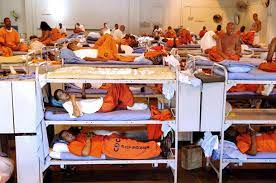Unit Reflections 3
What I learned from chapter 10 is that black people fought in the civil war to gain their freedom. At first Union troops were skeptical about letting black people join in the fight, later on they had no choice and were eager to let them join. Within the union army there were still racial hierarchy just like in the North. I never realized how even in the fight for black peoples freedom they are still racially segregated and thought of as lesser beings compared to white people. This is what I learned in chapter 10, about black peoples participation in the civil war.
In chapter 11 I learned about the reunification dilemma, were three groups the Southern whites, recently freed blacks, and politicians. Each group had there own plans and agendas for how they want the country to be run, and there own ideas about how to integrate the disconnected South back into the union. Chapter 11 taught me that times were changing but people could not decide how the country was meant to be ran, this is how the dilemma of reunification began for the U.S. This soon became a national crisis in of it's self.
In chapter 12 I learned of the "New slave system", black people where free but only in a paper since as if any black people were arrested and treated just like slaves in prison. This is why even after their so called freedom from plantations, black people were under mass incarceration as away to put black people back in slavery. Black people were arrested just for minor infractions and sent to prison, to do slave work. In chapter 12 I learned of how white people wanted to keep things as they were and the lengths they were willing to go for the hierarchy.
In chapter 13 I learned about black people's involvement in world war 1. In the beginning black people were segregated from taking part in the war then through political pressure and the NAACP black people took part in the fight. Even so most military officers and fellow combatants expected very little from them because of racial stereotypes. Even so, black people joined and a few fought for the country in the war. This is what I learned in chapter 13 that stereotypes changed and warped peoples perspective of black soldiers.
In chapter 14 I learned of Doris Dorie Miller who had no formal military training fired against Japan's attack at pearl Harbor. After the attack many white people criticized and doubted the possibility of a black man being brave enough to fire back against the threat. Later on Miller was awarded the Navy cross which is the highest honor you can get in the Navy. In chapter 14 I learned that stereotypes do not define black people.
In chapter 15 I learned about Brown vs. the board of education where Black people wanted equality in education. As the legal battle ended black people were allowed to attend the same school as white people for the same education. Even though they won the legal battle white people still threatened and even attacked black students, this was a way to get rid of black students. In chapter 15 I learned that black people had to endure many trials just for the same rights in education.
In chapter 16 I learned of black entertainment that went mainstream over the years. Shows like the Jefferson's, Sanford and Son, Good Times, and soul train. These shows became very popular and even started to change white peoples perspective on black people. These shows brought new views and interesting stories for the black community to enjoy. What I learned from chapter 16 is that these tv shows inspired the idea of togetherness and made white people acknowledge that black people weren't just the stereotypes they made up.









Comments
Post a Comment